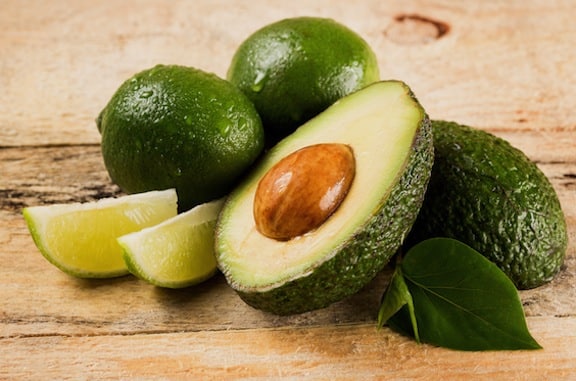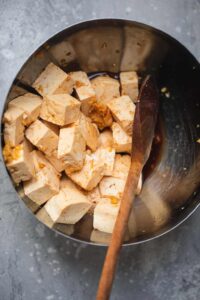VegKitchen regularly shares the Environmental Working Group’s annual lists of the Dirty Dozen™ and Clean Fifteen™ produce. The Dirty Dozen are the fruits and vegetables that are the most pesticide-laden. Consumers would do well to buy the organic varieties of the produce on this list.
On the other hand, the Clean Fifteen list features fruits and vegetables that have little or no pesticide residue. That’s where you can make an informed choice and save a bit of money on your food bill, though you’re always welcome to buy these in organic form if available.
There’s always the argument that organic fruits and vegetables aren’t necessarily more nutritious than conventionally grown. That may be true, but who needs to consume all those toxins? Remember also that pesticides become part of the soil, groundwater, and air. And the human factor is rarely discussed. We gloss over the fact that farm workers who harvest pesticide-laden produce get sick at a far higher rate.
Image: Environmental Working Group
According to EWG:
“Many shoppers don’t realize that pesticide residues are common on conventionally grown produce, even after it is carefully washed or peeled. EWG's analysis of the most recent tests by the Department of Agriculture found that nearly 70 percent of samples of conventionally grown produce were contaminated with pesticide residues.
The USDA tests found a total of 230 different pesticides and pesticide breakdown products on the thousands of produce samples analyzed. EWG's analysis of the tests shows that there are stark differences among various types of produce. The Shopper's Guide lists the Dirty Dozen™ fruits and vegetables with the most pesticide residues, and the Clean Fifteen™, for which few, if any, residues were detected.”
To learn more detail about each of the entries on the following lists, go to EWG’s Shopper’s Guide to Pesticides in Produce and read the full report here.
EWG’s 2018 Dirty Dozen™
- Strawberries
- Spinach
- Nectarines
- Apples
- Grapes
- Peaches
- Cherries
- Pears
- Tomatoes
- Celery
- Potatoes
- Sweet Bell Peppers
Image: Environmental Working Group
Following this top 12 dishonorable list are other types of produce, in this order. Use caution when buying these in non-organic form; wash well, and buy organic when you can:
- Cherry Tomatoes
- Snap Peas (imported)
- Lettuce
- Blueberries
- Hot Peppers
- Plums
- Kale and Collard Greens
- Cucumber
- Green Beans
- Tangerines
- Raspberries
… And more. See the entire list here.
EWG’s 2018 Clean Fifteen™
- Avocado
- Sweet Corn
- Pineapple
- Cabbage
- Onions
- Frozen Peas
- Papaya
- Asparagus
- Mango
- Eggplant
- Honeydew Melon
- Kiwi
- Cantaloupe
- Cauliflower
- Broccoli
You might also enjoy:









Comments
No Comments